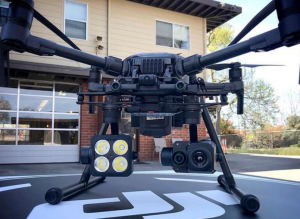Chinese-manufactured drones pose a potential national security threat to the United States due to China’s laws requiring companies to grant access to user data to authorities, warns a memo from the FBI and the Cybersecurity and Infrastructure Security Agency (CISA). The memo highlights that the use of these unmanned aircraft systems (UAS) by operators of critical infrastructure in the U.S. may compromise sensitive data by sending it to Chinese servers. The 2017 National Intelligence Law mandates Chinese companies to cooperate with state intelligence services, including providing access to user data worldwide. The memo emphasizes that this data is crucial for China’s Military-Civil Fusion strategy, aiming to gain a strategic advantage over the U.S. The FBI and CISA recommend secure-by-design alternatives made by U.S. companies instead of Chinese-made drones.

This isn’t the first time concerns about Chinese drones have been raised by U.S. federal agencies. In 2017, the Army banned the purchase of drones from Chinese manufacturer DJI, and U.S. senators expressed alarm in 2022 about Chinese-made drones flying over restricted airspace in Washington. In 2018, a Homeland Security official reported that “hundreds” of drones violated restrictions intended to protect the president. In April, Rep. Elise Stefanik and Rep. Mike Gallagher called for a ban on DJI using U.S. communications channels. The 2024 defense authorization bill included the American Security Drone Act of 2023, prohibiting federal agencies from using drones manufactured by Chinese firms.
The FBI and CISA recommend that U.S. law enforcement agencies and private companies consult the Department of Defense’s “Blue UAS Cleared List” for federally compliant drones. However, American-made drones are often considered of lower quality and higher cost than their Chinese counterparts. Stefanik and Gallagher argue for a complete ban on Chinese Communist Party-backed spy drones in the U.S., asserting that China subsidizes its drone industry to undermine American competition and surveil critical infrastructure sites. The concerns reflect broader tensions between the U.S. and China regarding technology, data security, and national defense.
The memo raises awareness about potential vulnerabilities and risks associated with Chinese-made drones and advocates for a proactive approach to safeguarding sensitive information. As geopolitical and technological competition intensifies, the issue of drone security becomes increasingly crucial, requiring a careful balance between innovation, economic interests, and national security concerns.

